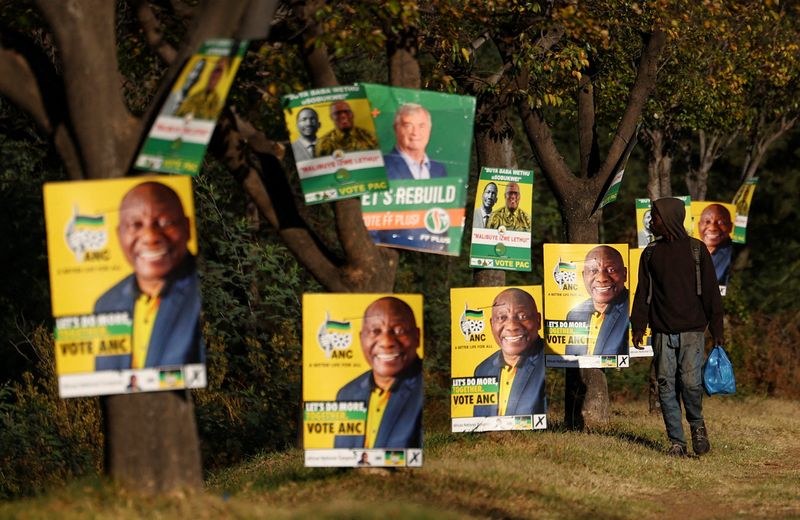By Alexander Winning
Welcome to the most anticipated election in South Africa since the end of apartheid. The polls suggest that the ruling African National Congress (ANC) is facing a tough battle to retain its parliamentary majority after three decades in power.
Back in 1994, when Nelson Mandela led the way, the ANC achieved a historic victory in South Africa’s first multi-racial election. Since then, the party has managed to secure a majority in every national election held every five years, although its support has been gradually declining.
This time around, if the ANC falls short of the 50% mark, it will need to form a coalition with smaller parties to govern. This scenario would be uncharted territory for South Africa, where the political landscape has been largely dominated by a single party.
Despite the challenges, the ANC is still projected to win the largest share of the vote. This means that President Cyril Ramaphosa is likely to retain his position, unless internal conflicts arise due to a weaker-than-expected performance by the party.
The dissatisfaction among voters over issues like high unemployment rates, crime, power blackouts, and corruption within the ANC has contributed to the party’s declining popularity.
More than 27 million South Africans are set to cast their votes at over 23,000 polling stations. The voting will take place from 0500 GMT to 1900 GMT, giving citizens ample time to participate in shaping the country’s future.
Aside from the ANC, several opposition parties are vying for power, including the Democratic Alliance, which aims to broaden its appeal through alliances with smaller parties. The Economic Freedom Fighters, advocating for nationalizing key sectors and addressing racial disparities, are also hoping to make an impact.
Former president Jacob Zuma is backing a new party called uMkhonto we Sizwe (MK). Zuma’s enduring influence, especially in his home province of KwaZulu-Natal, could potentially sway the results in certain areas.
The election commission is expected to release partial results shortly after polling stations close. While they have seven days to announce final results, the outcome may be revealed sooner based on past elections.


